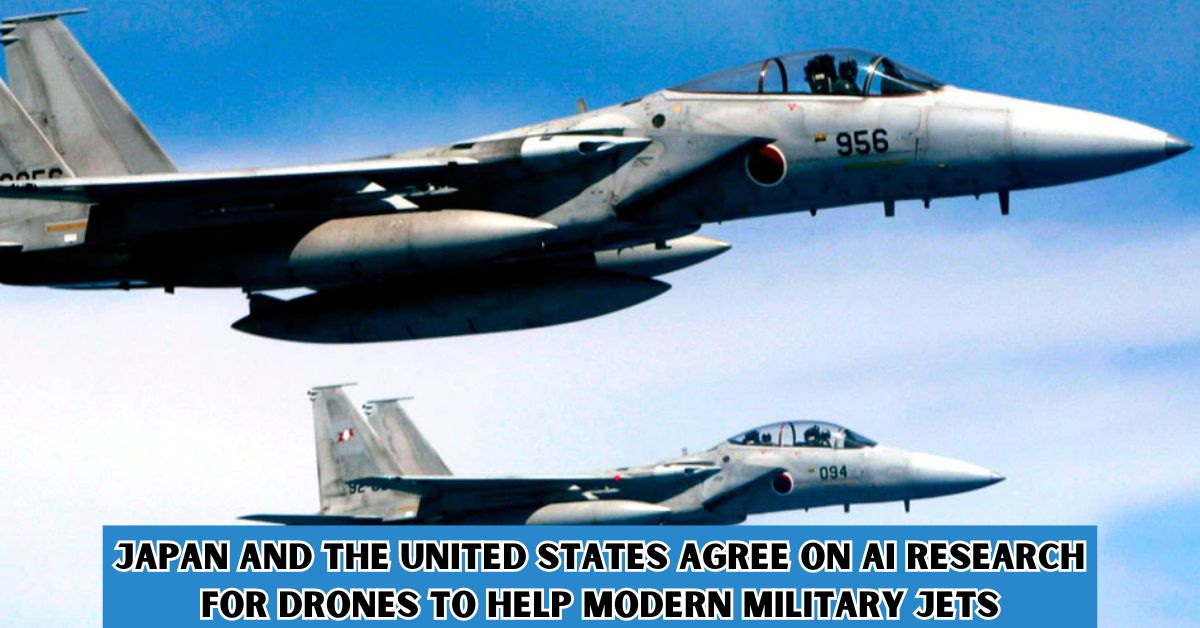In an effort to develop AI for drones that may complement Japan’s next fighter jet, the two countries have now decided to start working together on AI research. Japan, the United Kingdom, and Italy intend to work together on a next-generation fighter plane by the year 2035.
Even though the US isn’t involved with the fighter jet project, it has tried to strengthen defense collaboration with Japan, particularly in autonomous systems capabilities, and is Japan’s most important security partner.
“Revolutionize airborne combat by merging state-of-the-art artificial intelligence and machine learning with advanced unmanned air vehicles,” the United States Air Force stated in a news release published last month upon the signing of the agreement, describing the goal of the collaborative AI study.
“The AI developed in this joint research is expected to be applied to UAVs operated alongside Japan’s next fighter aircraft,” it added, stressing that the partnership will serve to preserve the “technological advantages” of the Japan-U.S. alliance.

Drones can fly in close proximity to combat jets to gather data. Deciding to back Japan’s defense cooperation with the two NATO members, the United States announced its support in December 2022.
The Asian nation is facing a tough security environment, especially with China becoming more assertive. As a result, the three countries concluded a fighter aircraft development contract.
Tokyo had planned to team up with American defense companies to build new fighters, but the United States has stringent regulations on the secrecy of sensitive information, so the Japanese government opted to seek out other partners.
While Italy and Britain are planning to replace their Eurofighter jets, Japan is aiming to construct a plane to replace its F-2s. Japan has never before entered into a cooperative agreement with a nation other than the US to build defense equipment as it does with the fighter aircraft program.
If you liked this post, you might also be interested in the following additional technology-related subjects:
